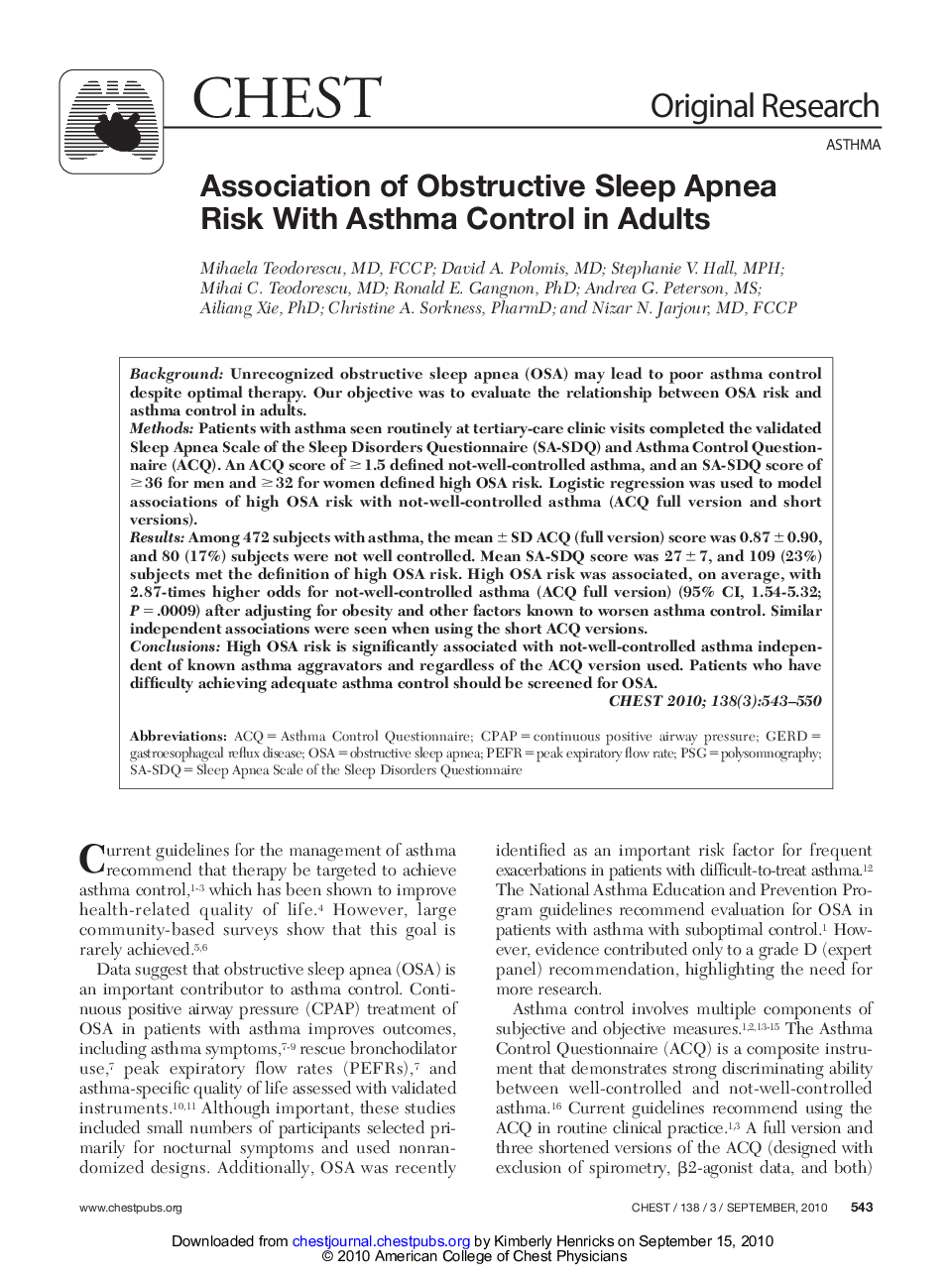| Article ID | Journal | Published Year | Pages | File Type |
|---|---|---|---|---|
| 2902708 | Chest | 2010 | 8 Pages |
BackgroundUnrecognized obstructive sleep apnea (OSA) may lead to poor asthma control despite optimal therapy. Our objective was to evaluate the relationship between OSA risk and asthma control in adults.MethodsPatients with asthma seen routinely at tertiary-care clinic visits completed the validated Sleep Apnea Scale of the Sleep Disorders Questionnaire (SA-SDQ) and Asthma Control Questionnaire (ACQ). An ACQ score of ≥ 1.5 defined not-well-controlled asthma, and an SA-SDQ score of ≥ 36 for men and ≥ 32 for women defined high OSA risk. Logistic regression was used to model associations of high OSA risk with not-well-controlled asthma (ACQ full version and short versions).ResultsAmong 472 subjects with asthma, the mean ± SD ACQ (full version) score was 0.87 ± 0.90, and 80 (17%) subjects were not well controlled. Mean SA-SDQ score was 27 ± 7, and 109 (23%) subjects met the definition of high OSA risk. High OSA risk was associated, on average, with 2.87-times higher odds for not-well-controlled asthma (ACQ full version) (95% CI, 1.54–5.32; P = .0009) after adjusting for obesity and other factors known to worsen asthma control. Similar independent associations were seen when using the short ACQ versions.ConclusionsHigh OSA risk is significantly associated with not-well-controlled asthma independent of known asthma aggravators and regardless of the ACQ version used. Patients who have difficulty achieving adequate asthma control should be screened for OSA.
